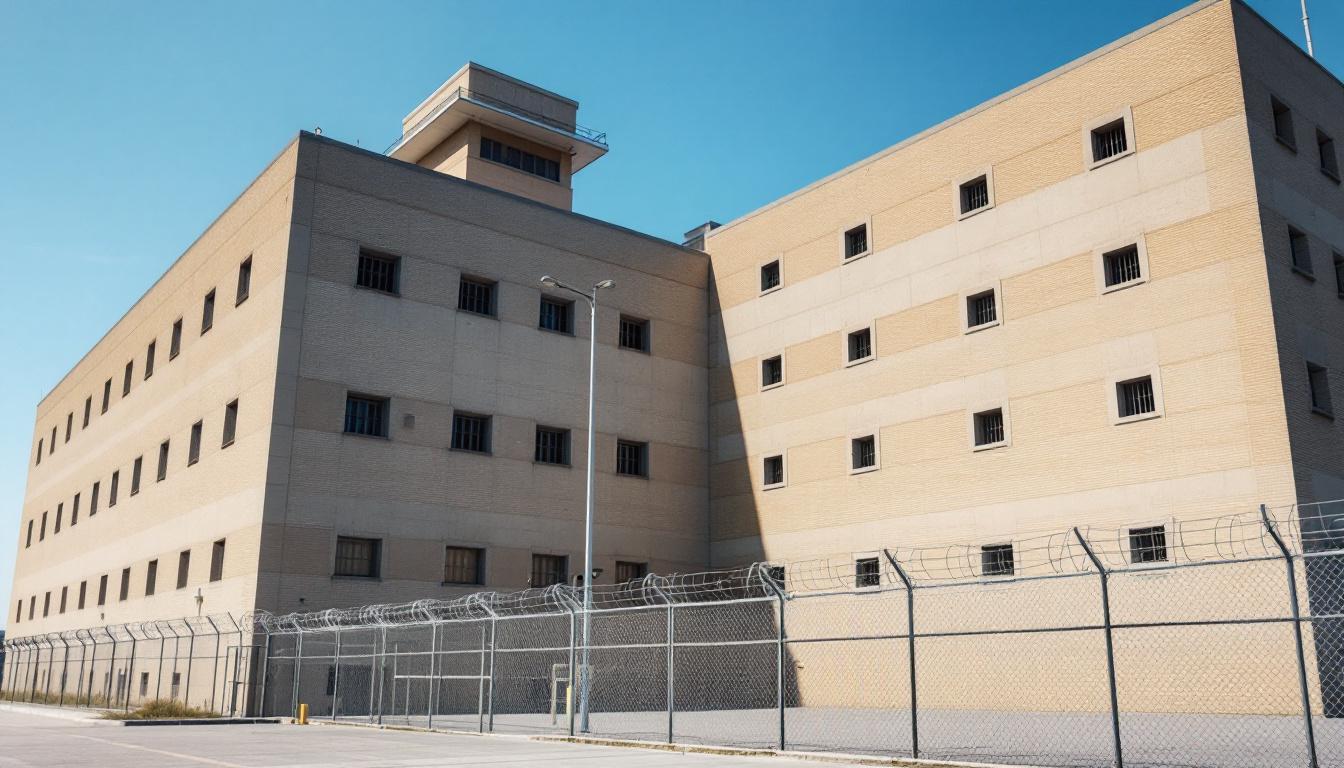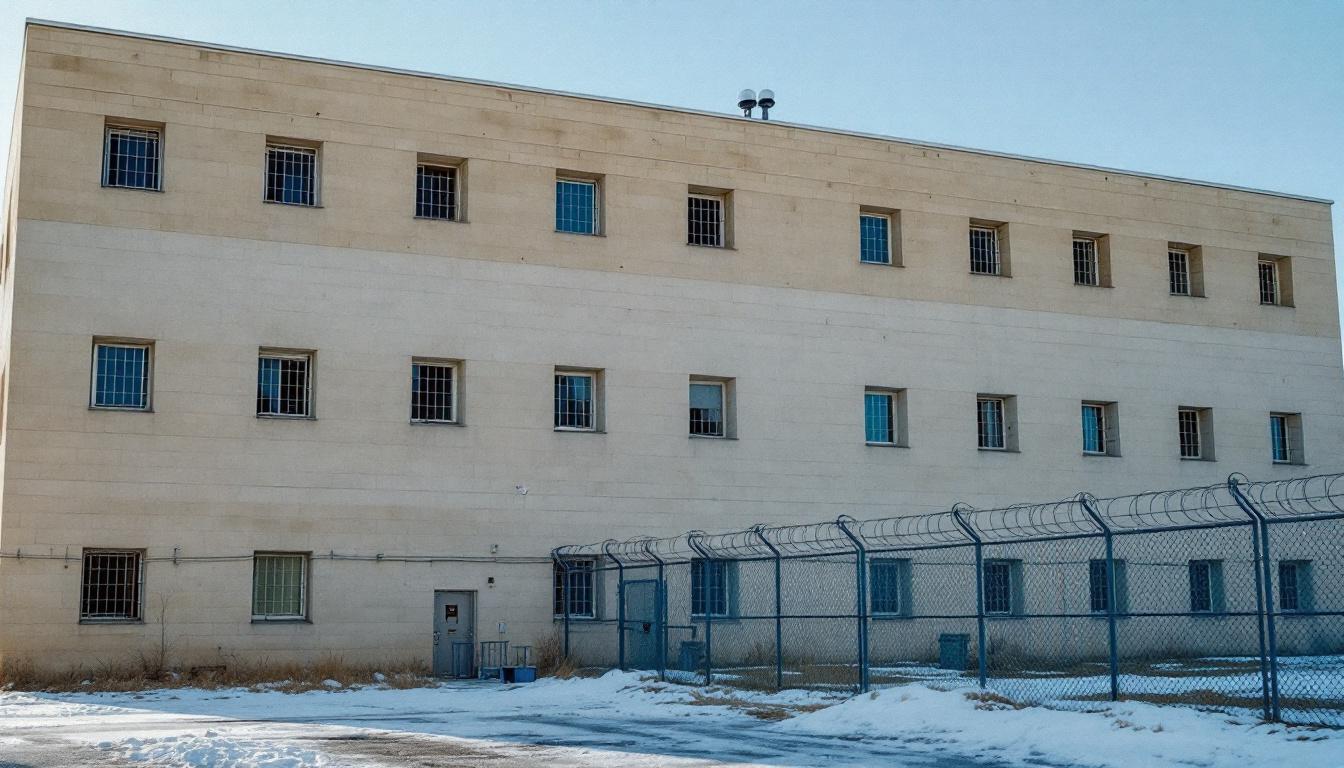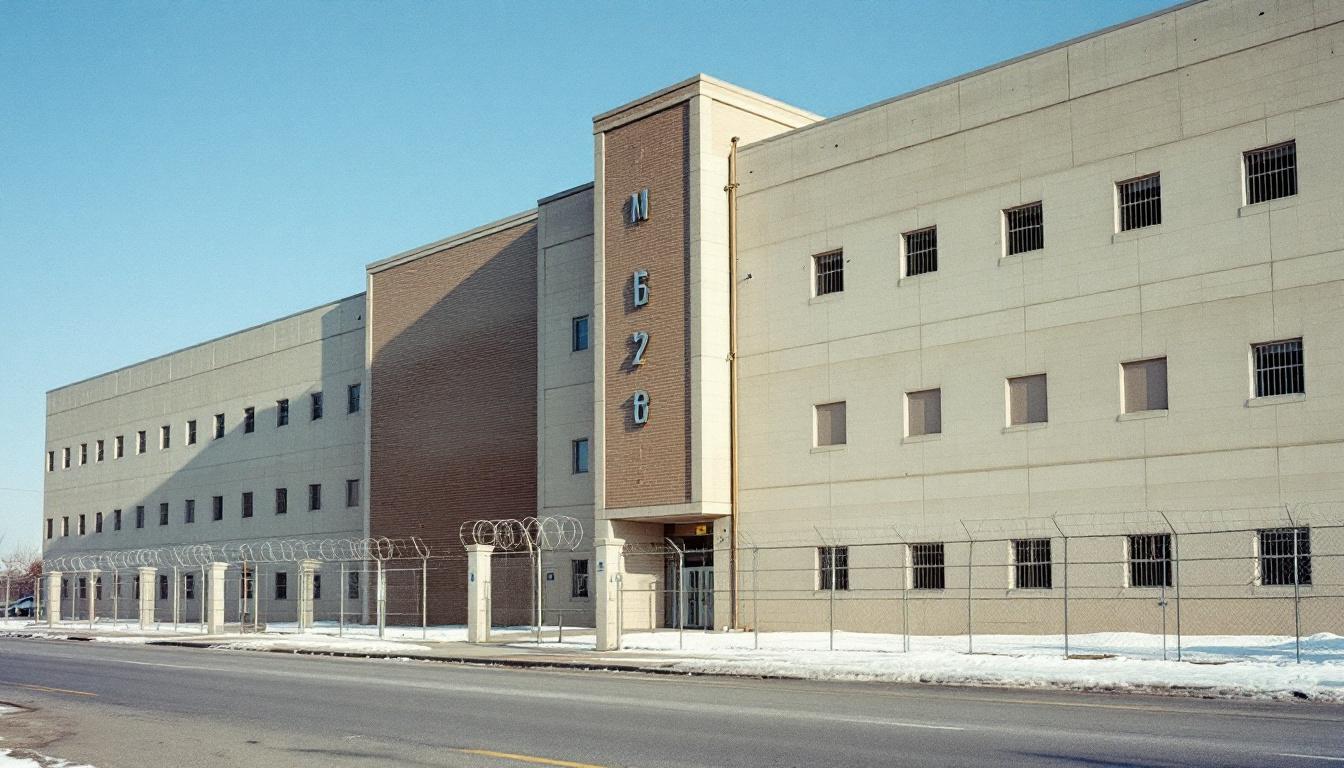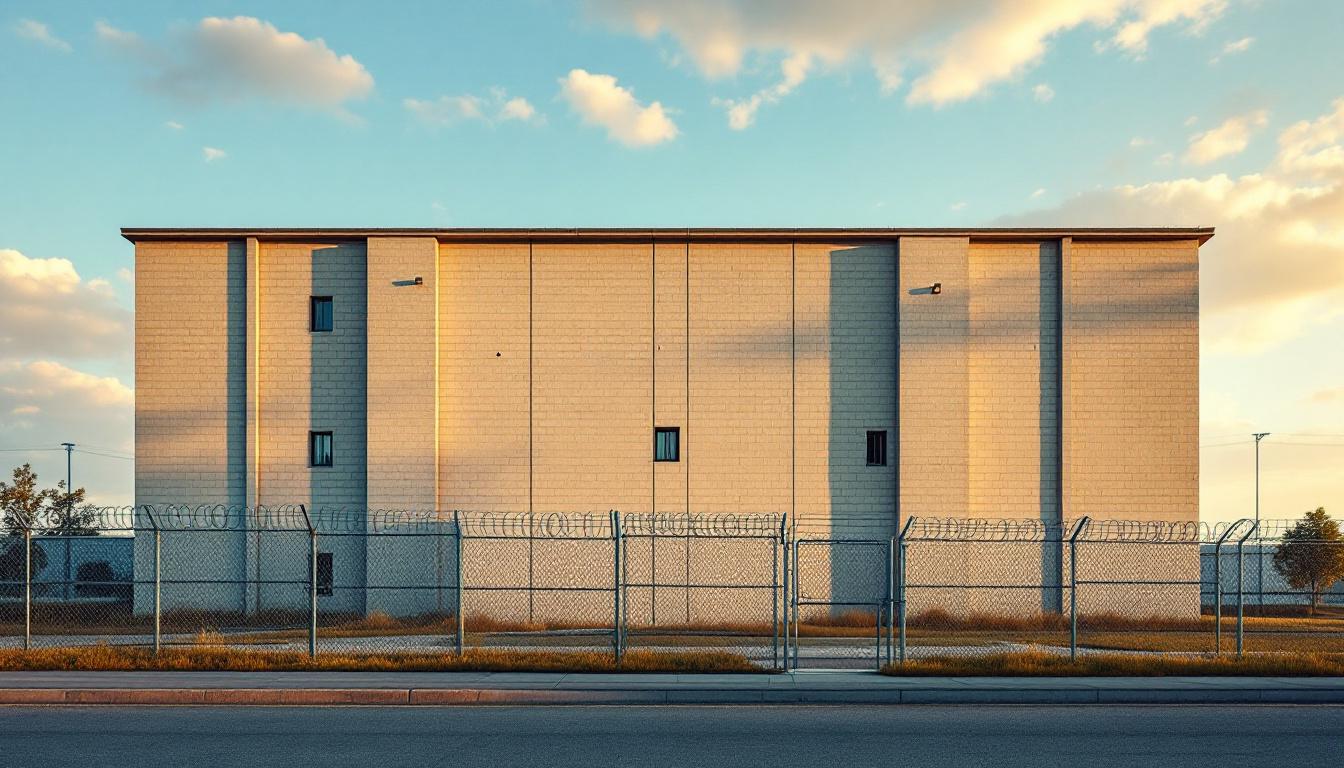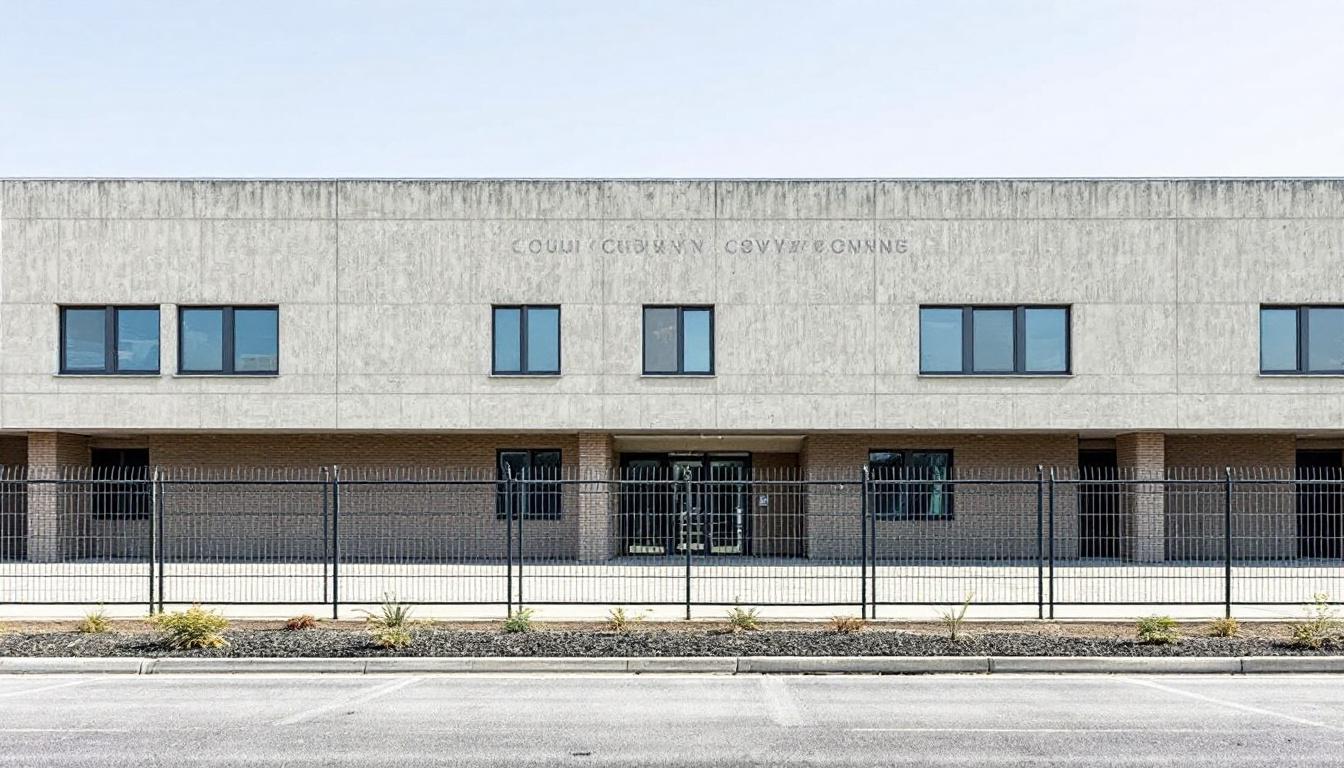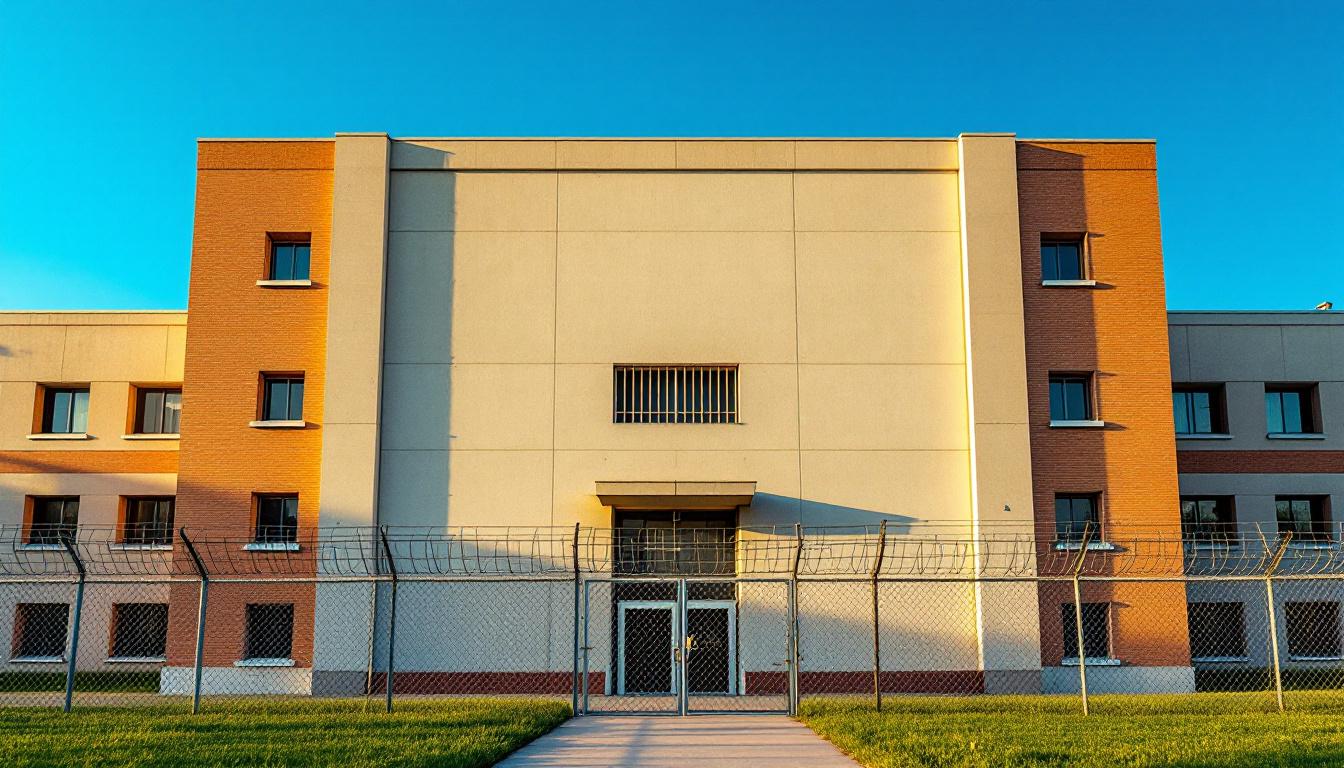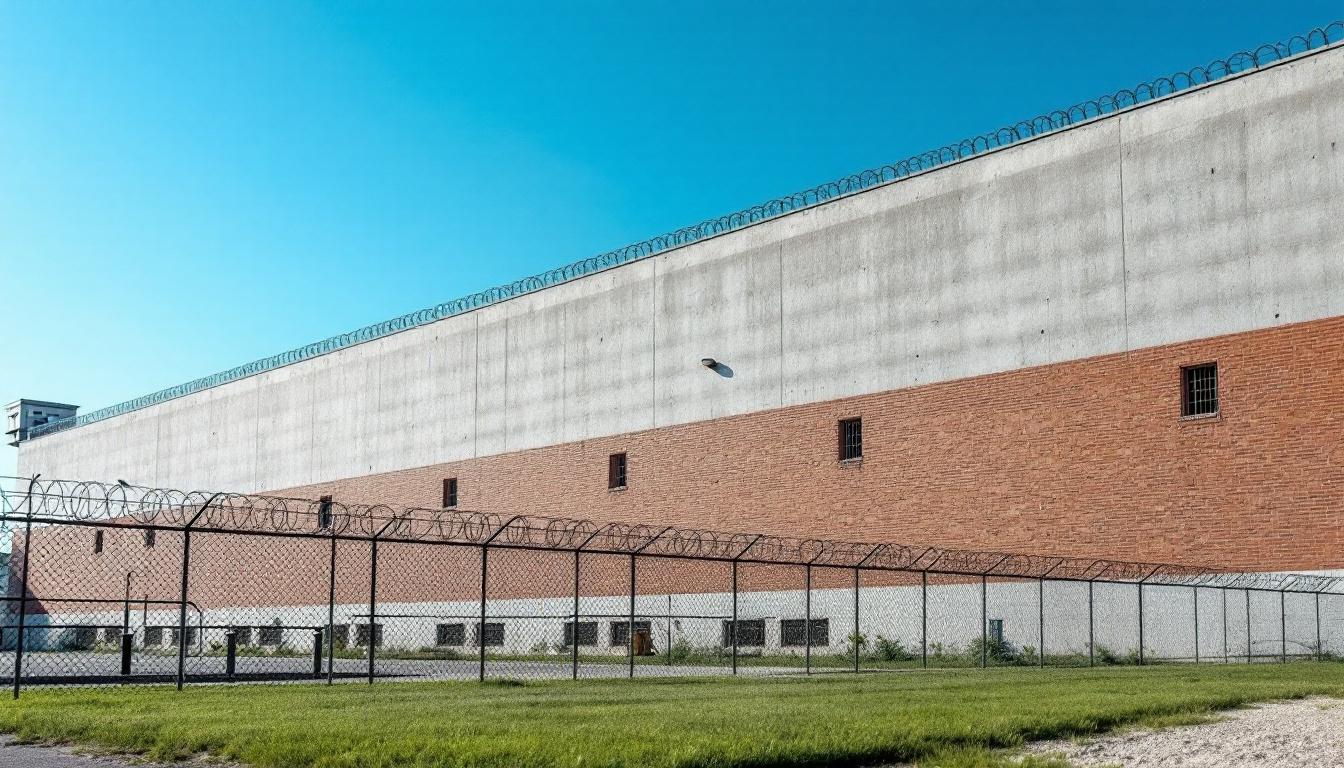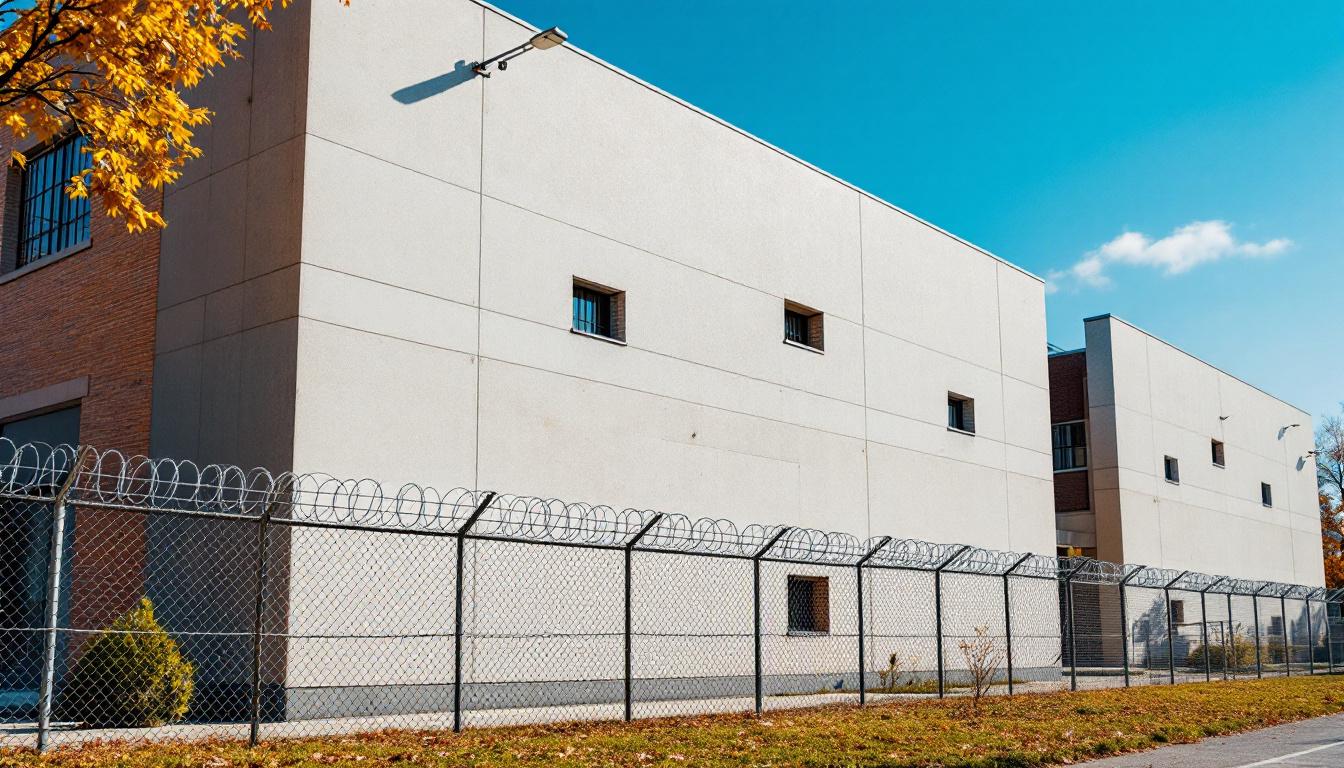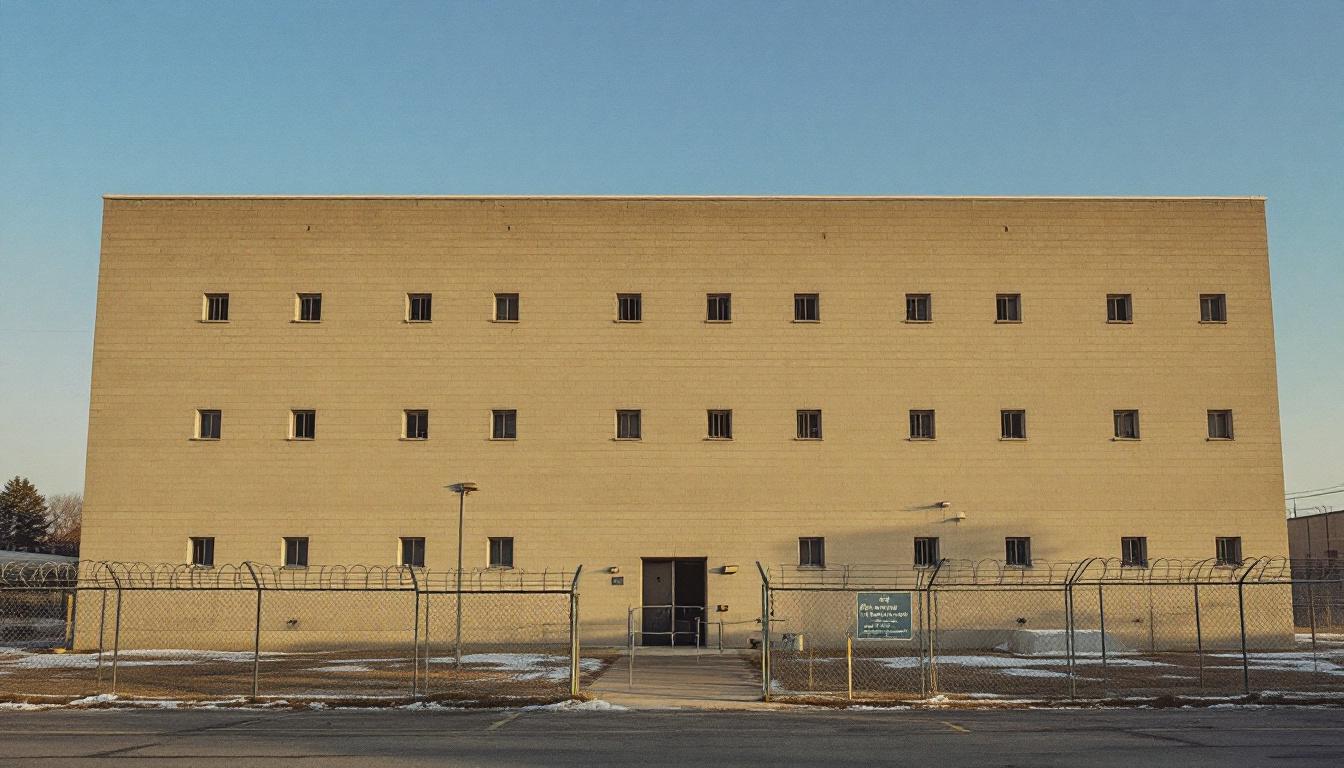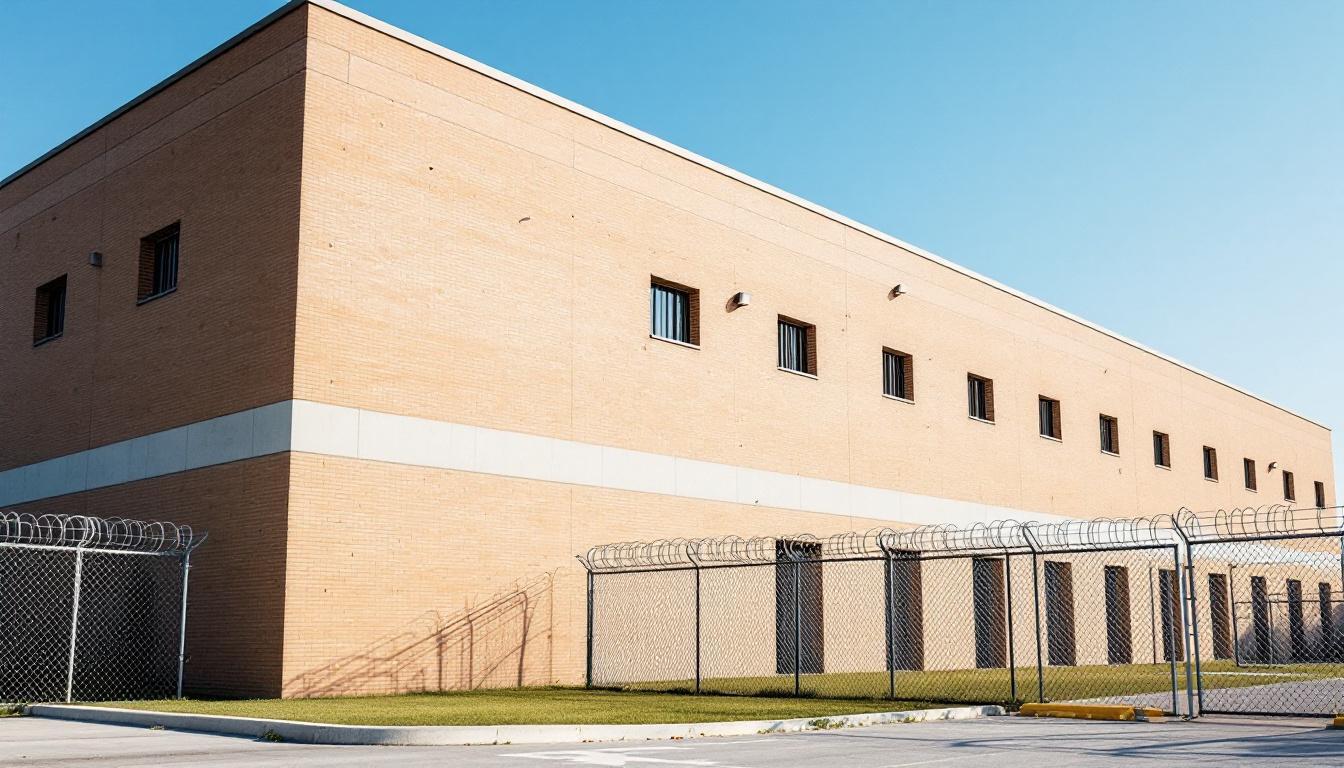
Quick Navigation
How to contact an inmate at Seneca County Sheriff Office
This comprehensive guide will walk you through how to connect with an inmate at Seneca County Sheriff Office. Follow the steps below to find an inmate and send letters and photos:
- Search for the inmate using our search tool below
- Create your account or log in to Penmate
- Write your message (up to 6,000 characters)
- Send instantly - inmates receive printed copies daily
Find an Inmate
Search for an inmate to start communicating today
Tip: You can search by first name, last name, or inmate ID number
To contact a person at Seneca County Sheriff Office start by searching for the person on the official facility website. Perform a search by following these steps:
- Step 1: Enter their first name and last name into the search form and click "Search"
- Step 2: Locate their inmate record
- Step 3: Write down their Inmate ID and any housing information provided
Important! Be sure to enter the person's full name. Nicknames should not be used.
How to Send Messages to Inmates

You can use your phone or computer to send emails, letters, and photos to an inmate. Messages are sent electronically to inmate tablets or kiosks at the facility. If you would like to send a message, start by searching for an inmate at Seneca County Sheriff Office.
Sending Photos and Postcards

A great way to send love and support to a loved one at Seneca County Sheriff Office is to send photos and postcards. It only takes a few minutes to send photos from your phone and it makes a huge difference. You can also mail postcards with words of support and inspiration, or design your own postcard for special moments like birthdays and holidays.
Important! Be sure not to send any explicit photos or they may not be approved by the facility. You can also use a photo printing app like Penmate to make sure your photos are printed at the correct size (4x6 or 3x5) and are mailed according to the rules and regulations of Seneca County Sheriff Office.
Frequently asked questions about Seneca County Sheriff Office
-
How long does it take to deliver a message?
If you're sending an email message your letter is usually delivered within 24-48 hours. For messages sent via mail you should expect delivery within 3-7 days. All messages will need be approved by Seneca County Sheriff Office.
-
How much does it cost to send a message to Seneca County Sheriff Office?
You can send a message free using your phone or mail a message via USPS for the price of a $0.60 stamp and envelope. You can also purchase credits or e-stamps from services starting at $1.99.
-
What services can I use to contact an inmate at Seneca County Sheriff Office?
Penmate
You can use Penmate to send letters and photos to an inmate from your phone. It's an easy way to stay in touch during your loved one's incarceration. Use the inmate locator to find an inmate's location and contact information, then you can send messages within a few minutes.
Securus messaging
Securus may be another option for communicating with an inmate at Seneca County Sheriff Office. You can create a friends and family account and purchase credits to send messages. All messages will be reviewed and must be approved by the facility.
JPay
Some county jails and state prisons may support sending messages with JPay. You must register an account with the system, find your loved one, and purchase stamps to send messages. For some locations you can also attach photos.
Smart Jail Mail
You may also check if Smart Jail Mail is available at Seneca County Sheriff Office. Smart Jail Mail is operated by Smart Communications and has contracted with some state and county jails. After purchasing credits, your messages and photos are sent to the facility, printed out, and then handed out to your loved one.
-
What is the mailing address of Seneca County Sheriff Office?
Mailing address:
Seneca County Sheriff Office
3040 OH-100
Tiffin, OH 44883
Phone: (419) 447-3456Business hours:
- Monday: Open 24 hours
- Tuesday: Open 24 hours
- Wednesday: Open 24 hours
- Thursday: Open 24 hours
- Friday: Open 24 hours
- Saturday: Open 24 hours
- Sunday: Open 24 hours
-
What are the visiting hours at Seneca County Sheriff Office?
Visiting hours at Seneca County Sheriff Office vary by housing unit and security level. Generally, visits are scheduled on weekends and holidays, with some facilities offering weekday visits. Contact the facility directly at (419) 447-3456 or check their website for the current visiting schedule. Visits typically last 30-60 minutes and must be scheduled in advance.
-
What items are prohibited when sending mail to Seneca County Sheriff Office?
Prohibited items typically include: cash, personal checks, stamps, stickers, glitter, glue, tape, staples, paperclips, polaroid photos, musical or blank greeting cards, hardcover books, magazines with staples, and any items containing metal or electronics. Only send letters on plain white paper with blue or black ink. Photos must be printed on regular photo paper (no Polaroids). Always check with Seneca County Sheriff Office for their specific mail policies.
-
How do I send money to an inmate at Seneca County Sheriff Office?
You can send money to an inmate at Seneca County Sheriff Office through several methods: 1) Online using JPay, Access Corrections, or the facility's approved vendor, 2) Money orders mailed directly to the facility with the inmate's name and ID number, 3) Kiosks located in the facility lobby, or 4) Over the phone using a credit or debit card. Fees vary by method, typically ranging from $2.95 to $11.95 per transaction.
-
Can I schedule a video visit with an inmate at Seneca County Sheriff Office?
Many facilities now offer video visitation as an alternative to in-person visits. At Seneca County Sheriff Office, video visits may be available through services like Penmate, Securus Video Connect, GTL, or ICSolutions. Video visits typically cost $10-20 for 20-30 minutes and must be scheduled in advance. You'll need a computer or smartphone with a camera and reliable internet connection. Contact the facility for their specific video visitation policies and approved vendors.
-
What identification do I need to visit an inmate at Seneca County Sheriff Office?
All visitors must present valid government-issued photo identification such as a driver's license, state ID, passport, or military ID. Minors must be accompanied by a parent or legal guardian who can provide the minor's birth certificate. Some facilities require visitors to be on the inmate's approved visitation list, which may require a background check. Contact Seneca County Sheriff Office for specific ID requirements and visitor approval procedures.
-
How can I find out an inmate's release date?
To find an inmate's release date at Seneca County Sheriff Office, you can: 1) Use the online inmate search tool if available, 2) Call the facility's records department, 3) Contact the inmate's case manager or counselor, or 4) Have the inmate provide this information during a call or visit. For privacy reasons, some facilities only release this information to immediate family members.
Facility Overview
Official Website

About Seneca County Sheriff Office
Serving the residents of Tiffin and surrounding Seneca County communities, this correctional facility operates with a clear commitment to public safety while maintaining focus on inmate welfare and preparation for community reintegration. The Seneca County Jail functions as an integral component of Ohio’s broader correctional network, handling pre-trial detention, sentenced individuals, and various custody levels within its secure environment. Located in the heart of Tiffin, the facility typically coordinates with regional law enforcement agencies, courts, and social service organizations to ensure comprehensive case management and seamless transitions throughout the justice process.
The operational philosophy at this OH correctional facility generally emphasizes balanced approaches to custody and rehabilitation programming. Inmates services may include educational opportunities, substance abuse counseling, mental health support, and vocational training designed to address underlying factors that contribute to criminal behavior. The facility often maintains connections with community-based organizations to facilitate successful reentry planning, though specific programming availability can vary based on funding, staffing, and individual case requirements. Medical care, legal access, and family visitation services form essential components of daily operations, supporting both constitutional requirements and the facility’s broader mission of preparing individuals for productive community participation upon release.
Programs & Services
Personal growth and skill development form the cornerstone of rehabilitative services at Seneca County Jail, where inmates have access to various opportunities designed to address underlying challenges and build practical capabilities. The facility typically emphasizes a comprehensive approach that recognizes education, vocational training, and therapeutic support as interconnected elements essential for successful reintegration. Through structured programming, inmates may engage in activities that not dedicated occupy their time constructively but also provide tangible tools for addressing the factors that contributed to their incarceration.
Educational initiatives often serve as a foundation for personal advancement, with services that may include basic literacy instruction, GED preparation, and adult education courses tailored to individual learning needs. These academic opportunities frequently complement vocational training programs that focus on developing marketable skills in various trades and industries. Additionally, job readiness training typically covers essential workplace competencies such as interview techniques, resume writing, and professional communication skills, helping inmates prepare for employment upon release.
Support services generally encompass a broad range of therapeutic and practical assistance designed to address substance abuse issues and other personal challenges. Recovery services may provide counseling, group therapy sessions, and educational components that help inmates understand addiction and develop coping strategies. The facility often includes work programs such as landscaping initiatives that allow inmates to gain hands-on experience while contributing to facility maintenance. Employment readiness services typically round out these offerings by connecting skill-building activities with real-world application, ensuring that inmates leave with both the practical abilities and personal insight necessary for sustained success in their communities.
Daily Life & Visitation
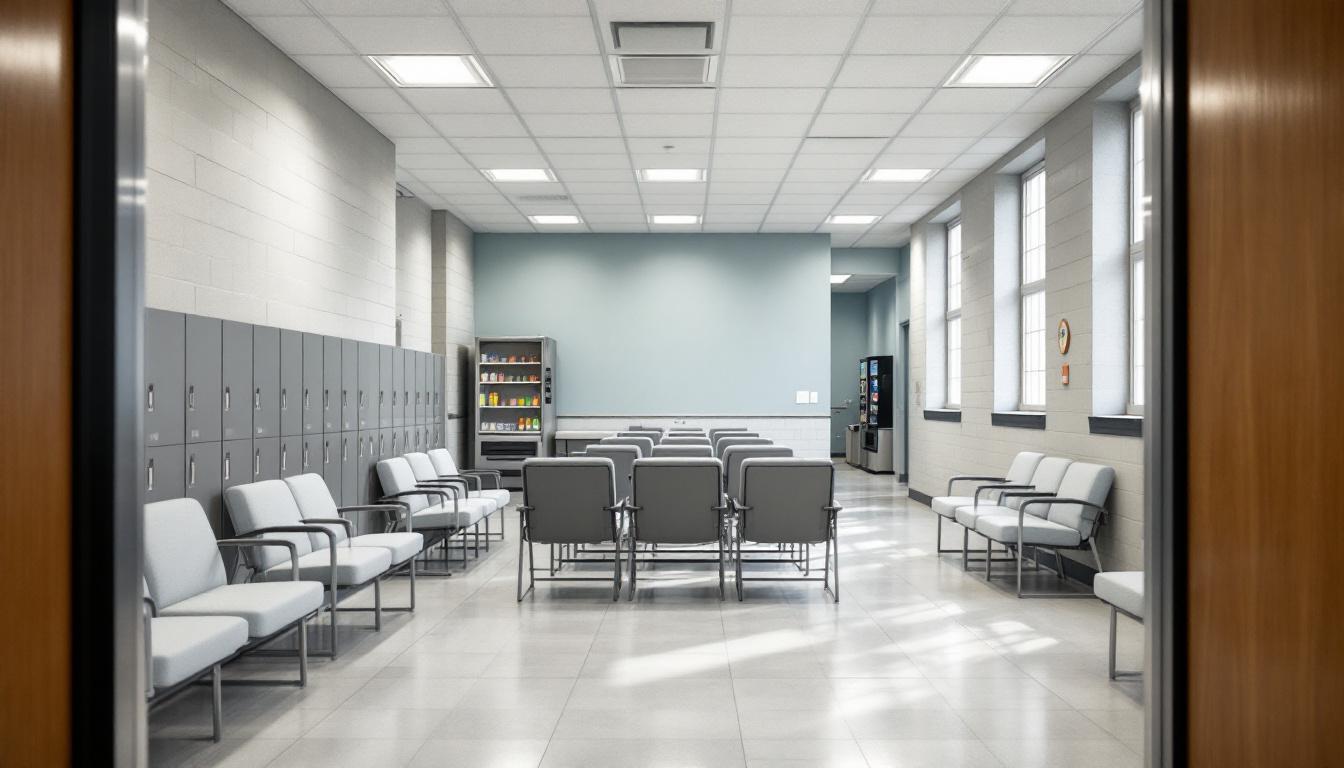
The housing units at Seneca County Jail create a structured environment where inmates must quickly learn to navigate shared living spaces and institutional routines. Today’s schedule begins early with security counts, followed by meal service and work assignments that provide consistency throughout the week. The facility typically operates on a predictable routine that helps inmates understand what to expect each day.
Living accommodations generally consist of dormitory-style housing or smaller cell units, depending on classification levels and available space. Inmates usually share sleeping areas and common spaces with others, requiring them to adapt to limited privacy and personal space. Meals are typically served in designated dining areas at scheduled times, with inmates following specific procedures for movement throughout the facility. Personal property is generally restricted to essential items, though inmates may usually purchase additional supplies through the commissary system when funds are available.
Additionally, the facility often provides various programs and activities designed to maintain structure and support rehabilitation goals. Recreation time may include access to television, reading materials, and limited exercise opportunities, while work assignments typically involve facility maintenance, kitchen duties, or other institutional operations. While maintaining security protocols, visitation policies generally allow inmates to maintain contact with family members and loved ones through scheduled visits and phone calls. These connections often provide crucial emotional support as inmates adapt to the institutional environment and work toward their release goals.
Ready to Connect?
Start communicating with your loved one today
Search for an Inmate
